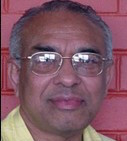Some Thoughts On Muslims & Constitution

The debate over a yet to be published new constitution or amendments to the existing constitution has reached such a hyper ethnic sensitivity that any room for a rational analysis seems to have been conspiratorially edged out. Any mention of the term federalism or its sanitised parallel devolution in assessing the merits of various constitutional measures to protect and maintain the territorial sovereignty and societal plurality of Sri Lanka has become so poisonous to sections of the Sinhalese Buddhist electorate that any Buddhist who does not support that electorate has automatically become a traitor just as the LTTE viewed its Tamil opponents. The fact that Sri Lanka had never been a unitary state but a federal one until the British artificially made it unitary in 1815 has somehow been forgotten conveniently. In fact, Buddhism and the Buddhists prospered more under precolonial federalism than under the colonial unitary polity.
As far as the Muslim community is concerned it has never been an active participant until now in any constitutional structuring of the island simply because of its historical nexus to trade and commerce on the none hand and almost a religious sprezzatura towards political matters. Whatever the form and nature of the constitution Muslim leadership was only concerned with how many seats in the parliament that the community could capture and how many cabinet positions could those parliamentarians gain. The ubiquity of Muslim population and the decisiveness of its voting power enhanced that possibility. Even when the JR constitution was introduced, instead of fighting to repudiate that adversarial constitution by joining the opposition at that time the community was concentrating to form an ethnic party of its own to maximise its chances of capturing seats and cabinet portfolios in the parliament. The politics of the Sri Lanka Muslim Congress since then speaks for itself. Surprisingly, even in the current constitutional debate the reigning SLMC leader according to news reports appears to be worried more of the prospect of reduced number of Muslim parliamentarians in the post-constitutional parliament than anything else.
However, the one issue that is dominating the constitution debate within the Muslim community is that of the north east merger. In spite of the historical linguistic and literary confluence between the Tamil and Muslim communities in the two provinces the political spasm between them has been widening since the time of independence. While the hegemony of Tamil leadership in the north and east was feared by Muslims the political opportunism of Muslims was frowned upon and hated by Tamils which kept the two communities politically apart. While the Tamil leadership ignored the Muslims and concentrated its energy and effort to achieve an independent “Tamil Arasu” in the traditional Tamil areas, which metamorphosed into “Tamil Eelam” under LTTE, the Muslims were left to fend for themselves to win their rights in the face of a raging ethnic majoritarian Buddhist hegemony. To the Muslims therefore the issue of merger or demerger is a choice between two hegemonies, whether to live under the national hegemony of the Buddhists in demerged north and east or under the regional hegemony of Tamils in a merged north-east.
The post-civil war anti-Muslim aggression and violence unleashed by a section of the Buddhists led by a few un-Buddhist monks with covert sympathy from the MR opposition but unchecked by the MS regime on the one hand and the un-readiness of the Tamil leadership to treat the Muslims not as a junior partner but as an equal partner in their struggle for constitutional rights and safeguards on the other is making that choice depressingly difficult. When hearts don’t agree of what use is a marriage contract even if it is written in gold?


